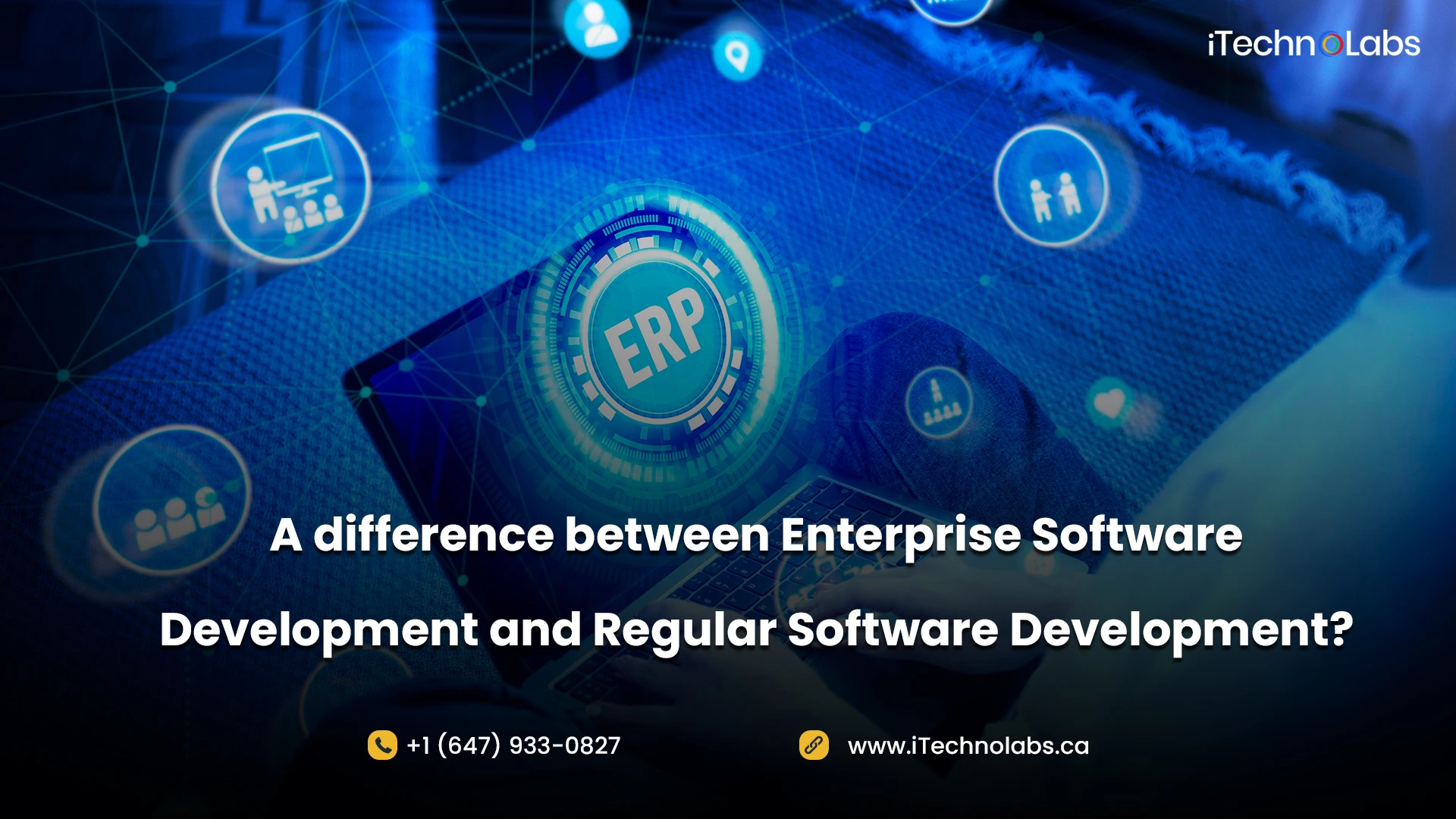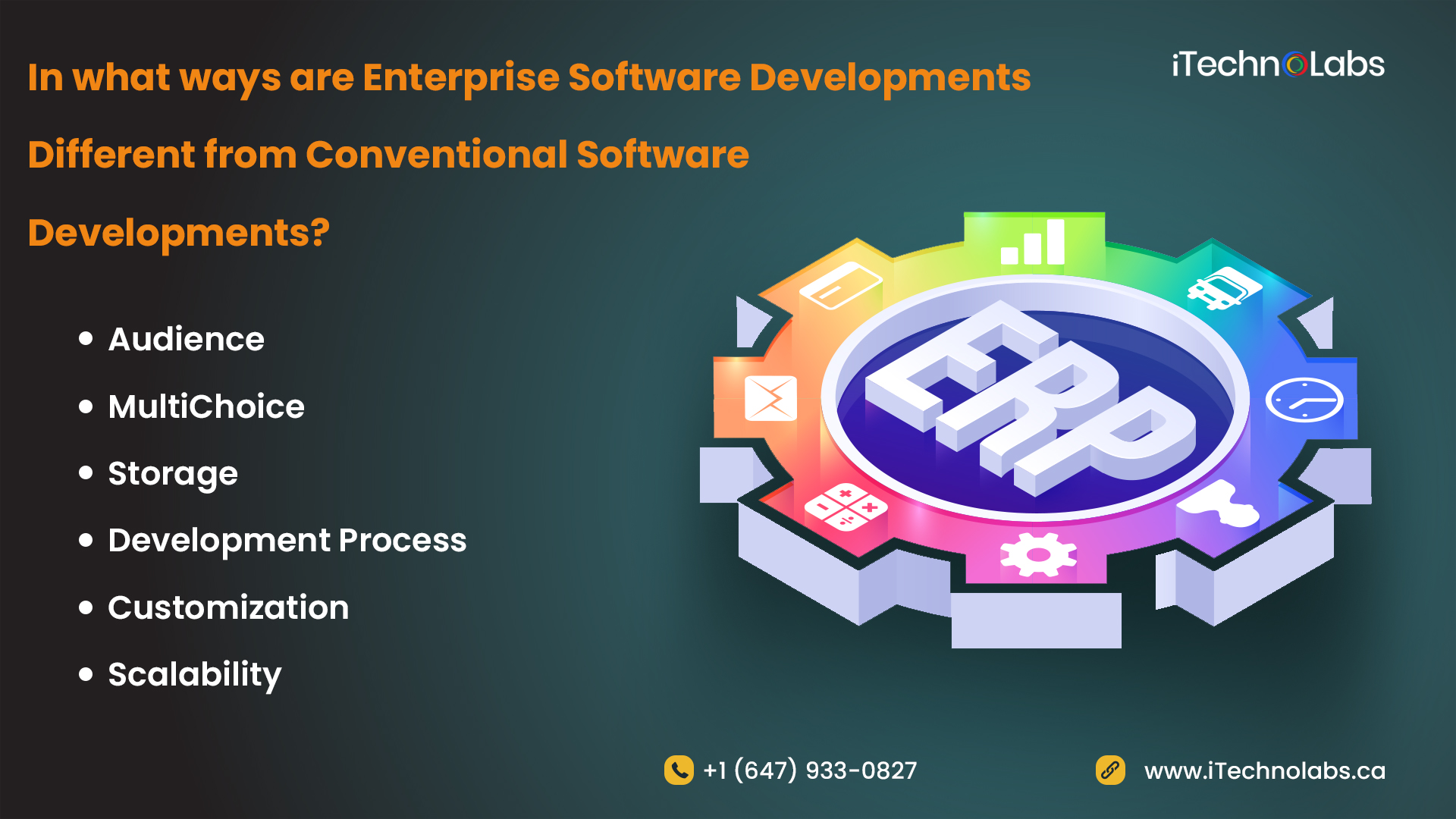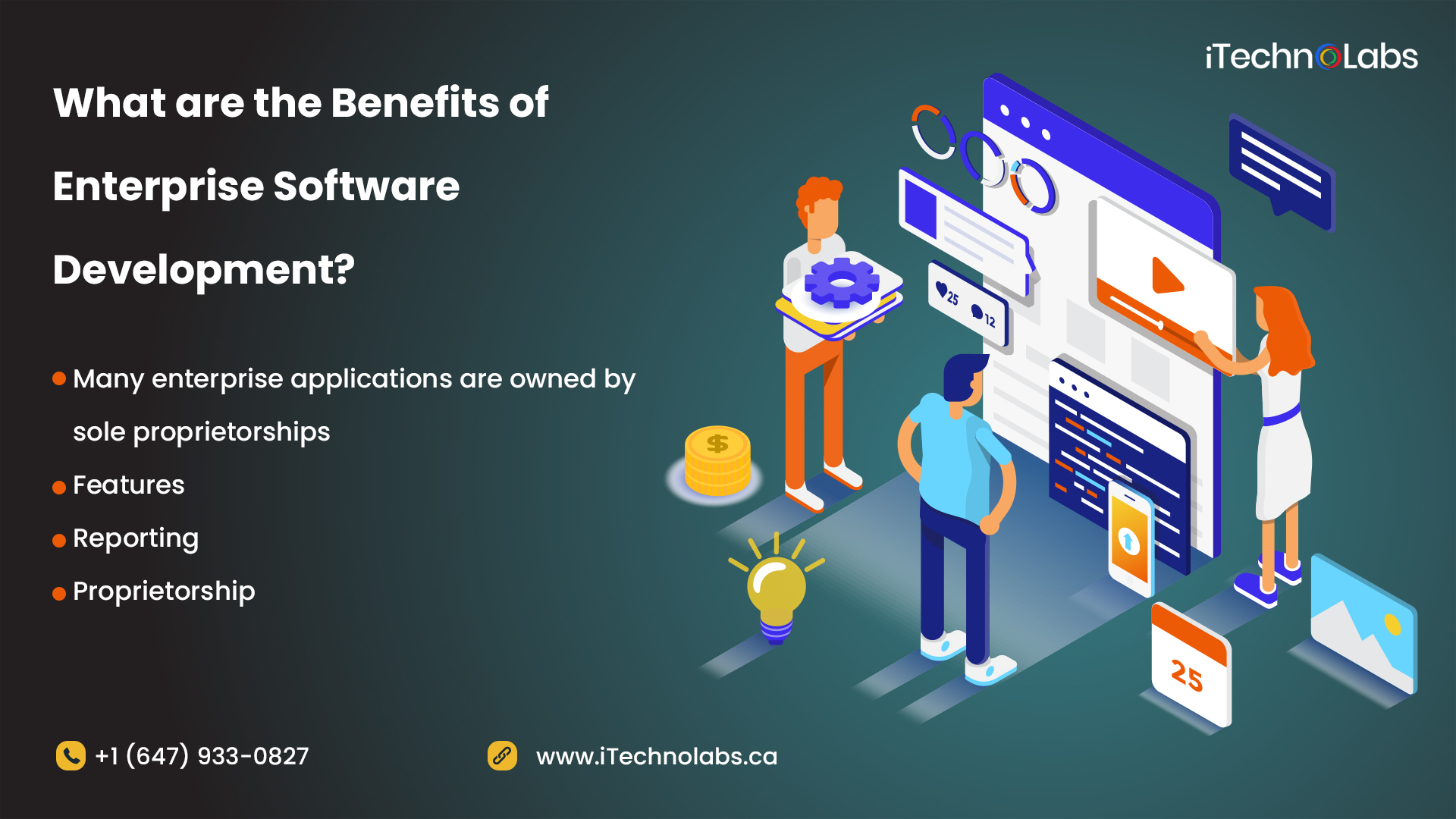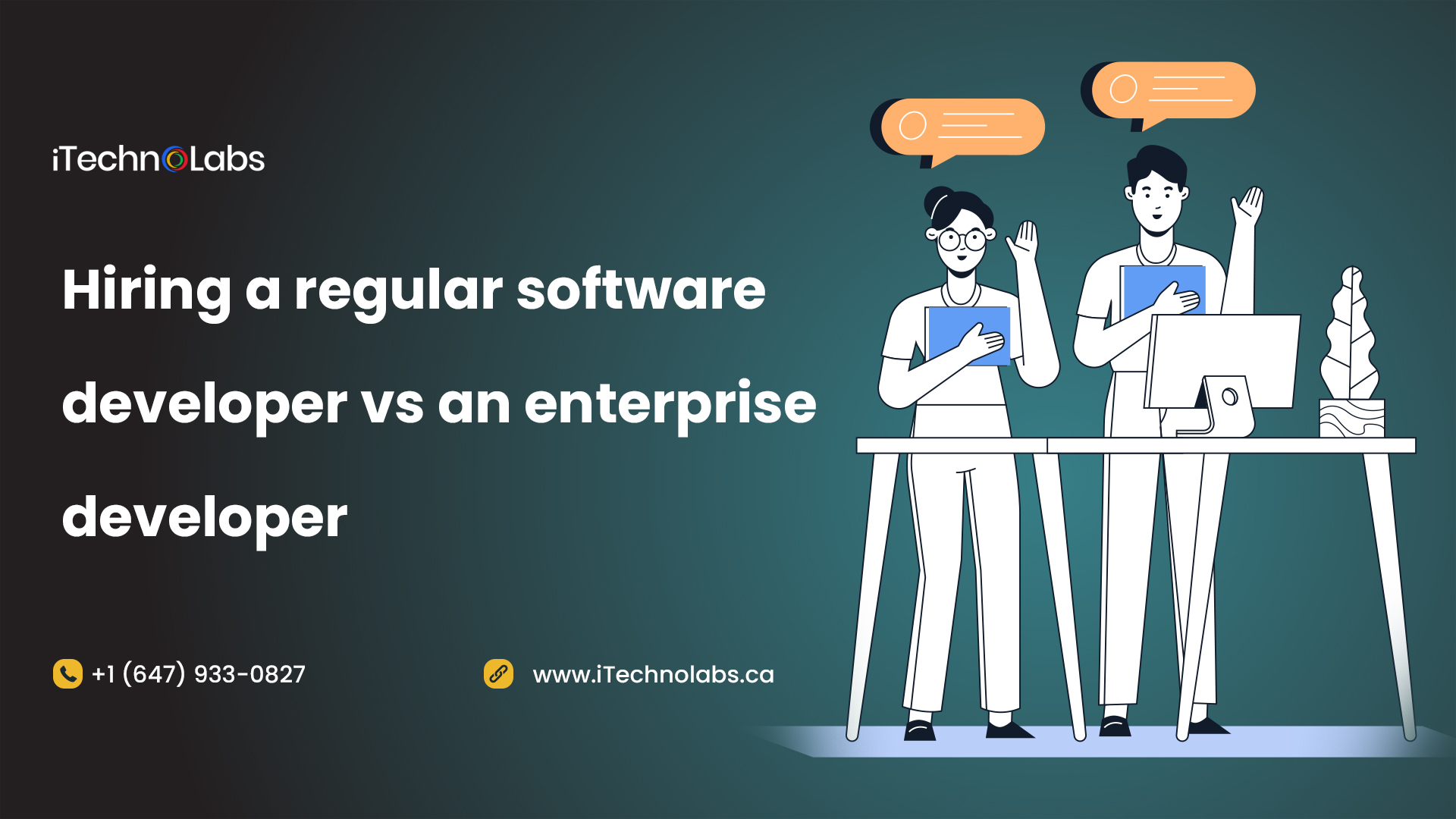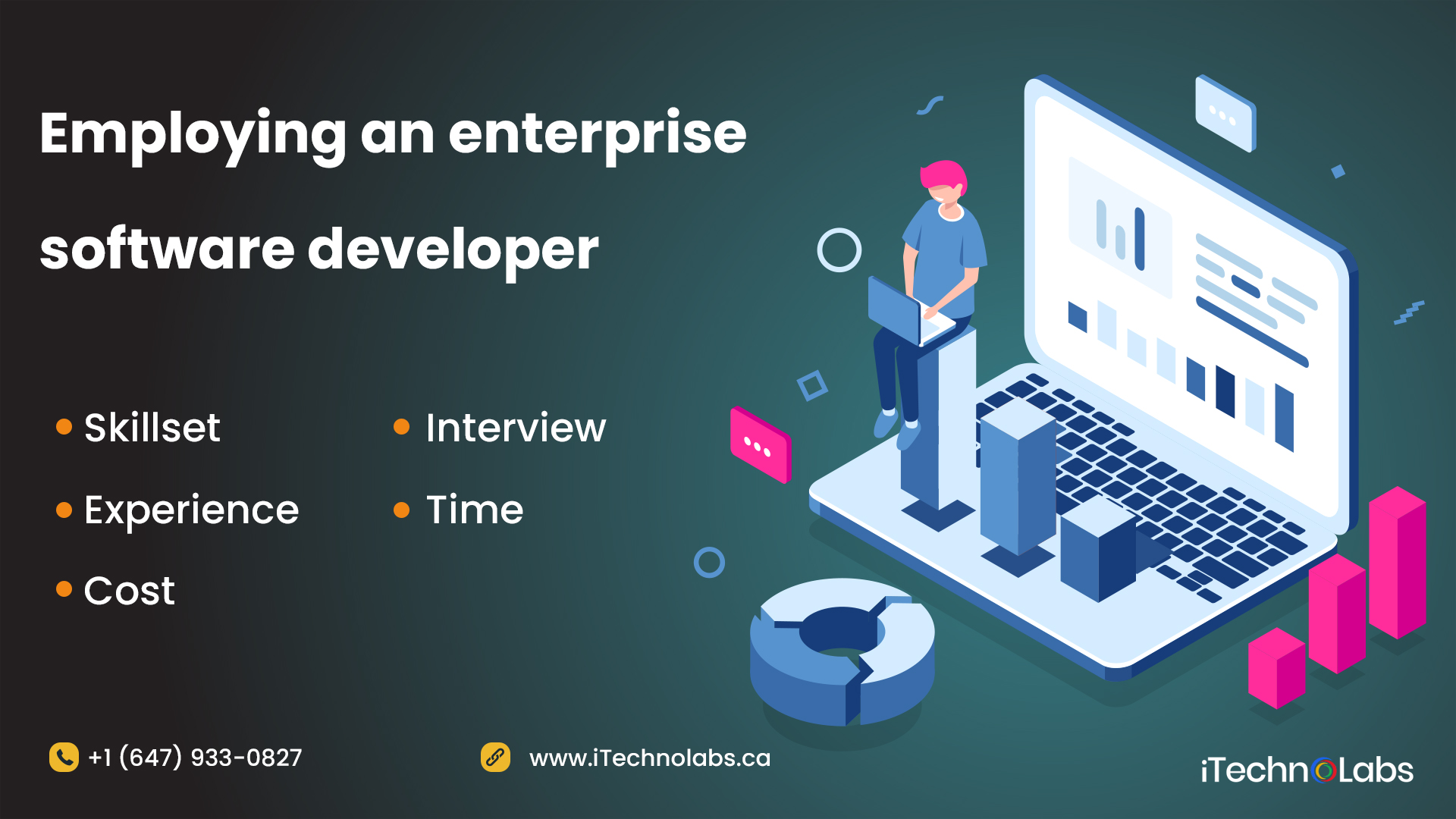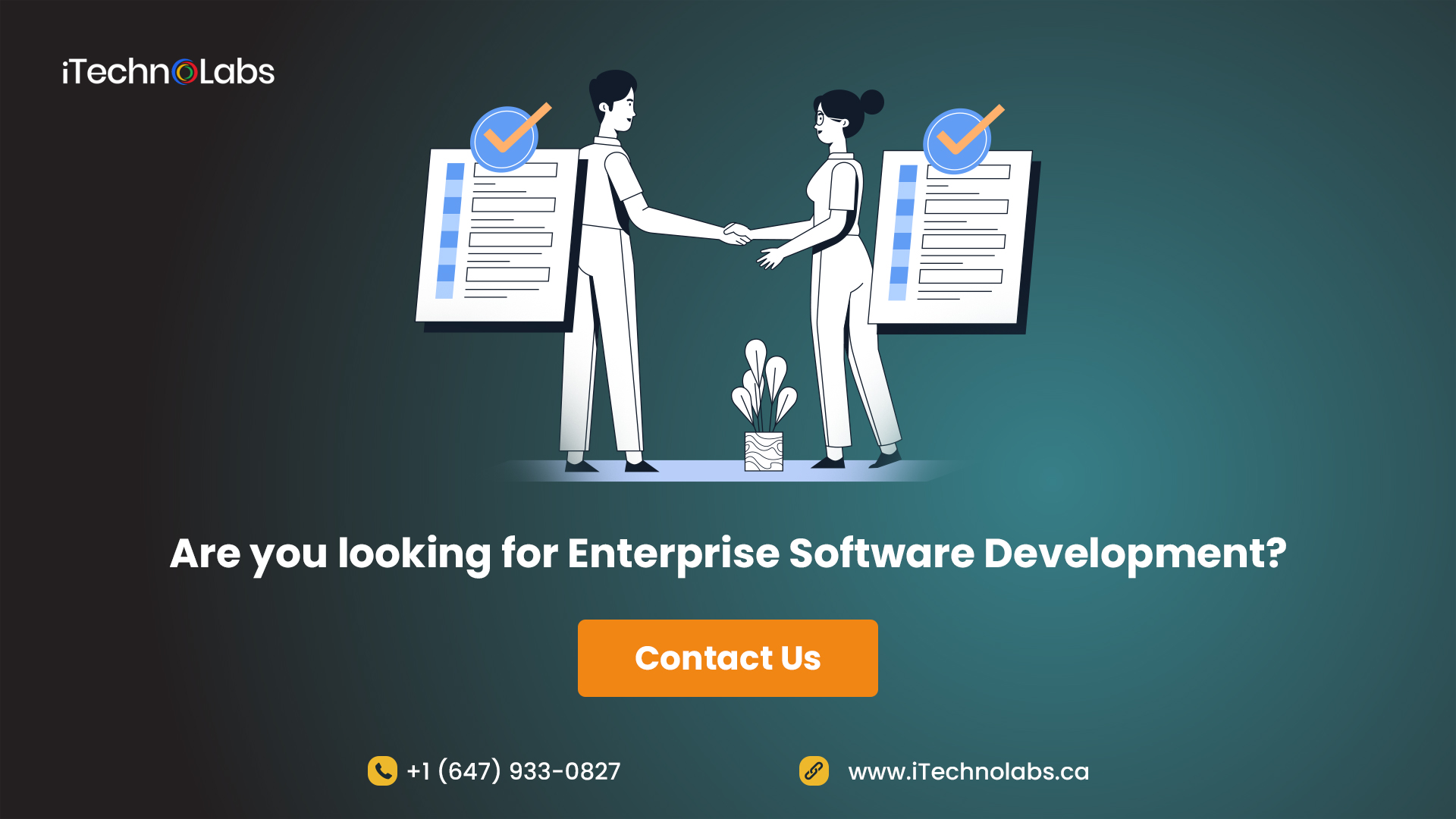Last updated on July 17th, 2023
In this insightful article, you will find an answer to the above question and more. We will show you the differences between enterprise software development and regular software development so you can hire the best programmers for your next project.
Table of Contents
ToggleWhat is Enterprise Software Development?
Software built for enterprises, not individuals, is enterprise software in its name. Businesses that need robust, scalable applications to meet their specific needs use the software.
Businesses are usually faced with unique problems. For example, a user’s email system will differ from the needs of a company. The questions of data collection, security, synching, and storage arise for companies. One of the reasons custom enterprise software development is so appealing is that this type of information varies from business to business.
What does regular software development entail?
In light of the definition we have already established, let’s explore its counterpart.
Ordinary software, also called ‘standard’ software, is sold directly to end-users. Nevertheless, some small business owners use standard software to achieve their business goals. Despite this, they usually have restricted features since they are geared more towards households or individuals rather than businesses.
What ways are Enterprise Software Developments Different from Conventional Software Developments?
It is possible to develop both enterprise and regular software that helps businesses achieve their goals. Enterprise solutions, for instance, improve efficiencies of processes, but traditional apps, on the other hand, increase client loyalty. Most enterprise software developers tend to specialize in a particular niche, whereas their counterparts are typically jacks of all trades. As their differences are numerous, picking the best programmer is essential. It is crucial to find someone who can develop customized solutions for your business.
This article explains the differences between enterprise and regular software engineering to better understand the issue.
Due to the continued evolution of technology, enterprise software is becoming more and more similar to regular software. Despite this, there are still some differences:
-
Audience:
A software solution for enterprises is created to satisfy the needs of a multitude of users. Enterprise software development is designed to meet the needs of large businesses with a hierarchical structure. On the other hand, regular software targets individuals or smaller groups of users.
-
MultiChoice:
A software development company that provides enterprise-level solutions needs a program with multiple options. Thus, the software has to have various options tailored to each department within the company, for instance. On the other hand, regular software applications are mainly designed for individuals and will have one or just a few options.
-
Storage:
A standard software package does not have to worry about securing large amounts of sensitive data to ensure business success. Further, companies use the information as a reference in the future for audits to measure their business success, among other uses. Enterprise software development typically depends on cloud storage because of its scalability, security, and collaboration capabilities. As an alternative to storing on servers, it is also less expensive. But it isn’t the only one. Technology advances have led to several viable storage options, which your software developer can recommend depending on your needs.
In addition, data conversion in regular software is simpler than in enterprise software since the latter covers an extensive array of information.
-
Development Process:
Compared with regular software, the testing and configuration of enterprise software are more complex. To configure or customize its features, programmers have to write code to solve an enterprise-wide problem instead of individual or departmental problems. Additionally, the software needs to work seamlessly with other enterprise apps and share data with them.
-
Customization:
The way each company uses software is unique, so customization features are so critical. Due to the fact that enterprises must meet diverse needs, enterprise software offers more robust personalization options than regular software.
In practice, seamless workflows across business systems are required by companies. An enterprise software developer can connect enterprise software with CRM systems, for instance, to interconnect them.
-
Scalability:
Each entrepreneur expects their business to grow regardless of what services they offer or how many employees they hire. Therefore, enterprise software needs to remain flexible while adapting to changing needs of organizations.
Enterprise software can handle resource upgrades and downgrades more smoothly than standard programs for individuals. Business owners, therefore, benefit from them.
What are the Benefits of Enterprise Software Development?
- Sole proprietorships
- Features
- Reporting
- Proprietorship
- Sole proprietorships – Which means that it is owned by the proprietor and is not shared by multiple users. In-house or external designers can modify apps more efficiently with this approach. For it to function correctly, it relies on the internet and is not a web application.
- Features – Conventional software is unlikely to offer all of the features and functions your company requires or desires due to its limited flexibility. However, enterprise software strives to meet your organization’s operational needs.
- Reporting – The creation and delivery of reports about standard software is a challenging operation. Reports can help determine the costs of preparing a report since they analyze the entire set of data. However, enterprise software allows reporting and querying from all devices. Third-party applications, such as interrogating and reporting, are included in enterprise applications. Incorporated third-party solutions, such as Google Cloud Platform, can enable corporate systems to effectively manage routine tasks.
- Proprietorship – Software for enterprise applications is an example of a single-ownership system. In this case, the proprietors of the business are in complete control, and under no circumstances can another person use it. Once the enterprise software is released, ownership rights transfer to the customer organization regardless of whether a reputable bespoke software development firm develops it.
Moreover, using in-house engineers or third-party support allows for greater scalability and adaptability of the solution. Organizations are free to make changes whenever they wish.
The software development firm retains ownership of standard software, however. Individuals or businesses cannot modify the software. There are predefined functions in this type of software, and they only perform the tasks assigned to them. New innovations do not substantially alter their functionality.
Hiring a Regular Software Developer vs an Enterprise Developer
Since enterprise software developers and regular software developers have different skillsets and experiences, they cannot be classified as a one-size-fits-all group. The needs of enterprise developers are different from those of small businesses and startups.
Therefore, each type of developer has a different hiring process and considerations. Here are some tips:
What are benefits of Employing an enterprise software developer
- Skillset
- Experience
- Cost
- Interview
- Time
Skillset: You should be looking for someone with very specific skills when hiring a developer for enterprise software. Programmers who are jacks of all trades do not belong in this role. Therefore, you must specify the specific technology stack or market niche your developer should focus on.
Experience: At least three years of experience working for a large company should be required, not a small company or startup.
Cost: Invest more in finding the right candidate.
Interview: The interviewer should test the candidate’s abilities and assess whether or not they are a team player.
Time: It is likely to take more time to fill this position than a regular software developer position, since the candidate must have specialized skills and experience.
Engaging a Regular software developer
Skillset: Small businesses and startups tend to need software developers with broad skill sets, so the more diverse the candidate’s background the better. Since the company cannot afford to have many developers, they will be required to work on a variety of projects.
Experience: It is also imperative that this developer has experience working in environments where he or she is required to perform various tasks.
Cost: It’s generally cheaper to hire a freelance developer than an enterprise software developer, but that’s not always true.
Interview: An employee’s ability to work well in a team may be just an added bonus, depending on the working environment. This role could be best suited to a lone wolf who does it all. Developers aren’t hired without undergoing a thorough assessment of their abilities.
Time: If you hire entry-level developers for this position, it could take a relatively short time to fill. However, everything depends on your specific project. In order to hire freelancers for your project, you can utilize many online platforms.
Are you looking for Enterprise Software Development Company?
In any development plan for a software product, the primary objective is to design the product contextually. In order to build successful programs, developers must look beyond the current program function to the long-term goals of their customers or users. They must understand how to use, improve, and maintain the software as their businesses expand. Once that is done, it is time to choose the appropriate software development method.
Frequently Asked Questions For Enterprise Software Development
-
What is enterprise software development?
- In simple terms, enterprise software development builds applications and softwares that smoothen the flow of meticulous work in a large business organisation
- The target users of an enterprise apps are none other than the employees of the organisation
- The purpose of the development of an enterprise app is to facilitate the employees to enhance the proficiency and accuracy of the work performed
- Enterprise apps usually serve employees across various departments of an organisation to effectivize the the inter-departmental work-synchronisation
- Enterprise softwares are different regular softwares which are meant to be used by the end users and not a groups of employees of any organisation
- Enterprise Resource Planning (ERP) software is one such example of enterprise level software development
2. What is the difference between app and software?
- By definition, software is a collection of data, programs, and procedures that aims to direct the hardware on how to work. On the other hand, an app is a specific program which aims to perform a particular task
- Software is a broad term for computer programs, whereas an app is a type that falls under the category of software
- An app interacts with the end users and perform a task that it is meant to perform, whereas a software provides a platform for an app to be able to run over a device
- Software can be installed and updated on a device using an available hardware package. On the other hand, you can easily download an app from the app/play store with or without making payment in return and update it from time to time using the app/play store
- Examples of software are macOS, Linux, and Windows 11. Examples of an app are Instagram, Pinterest, and Microsoft Office
